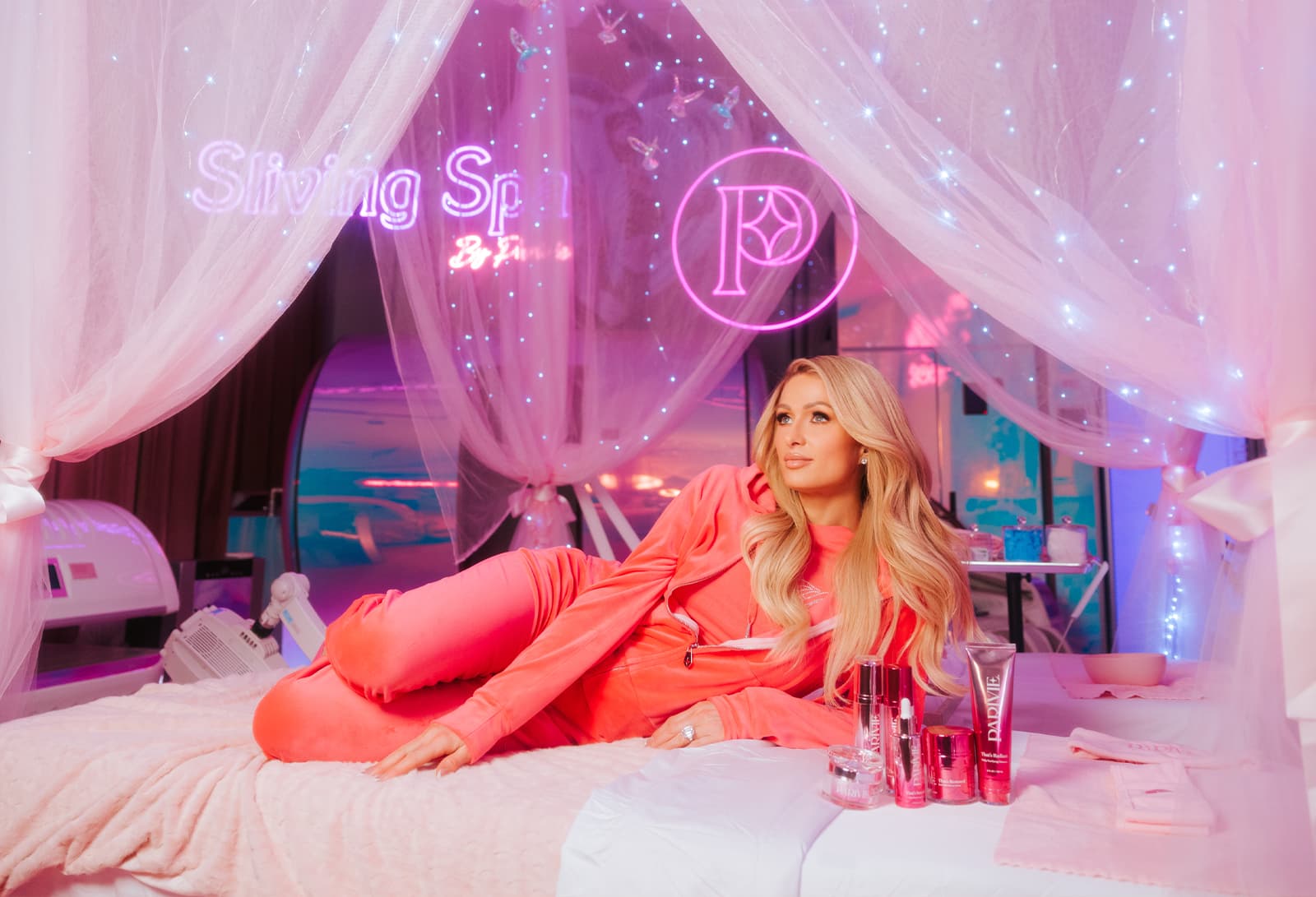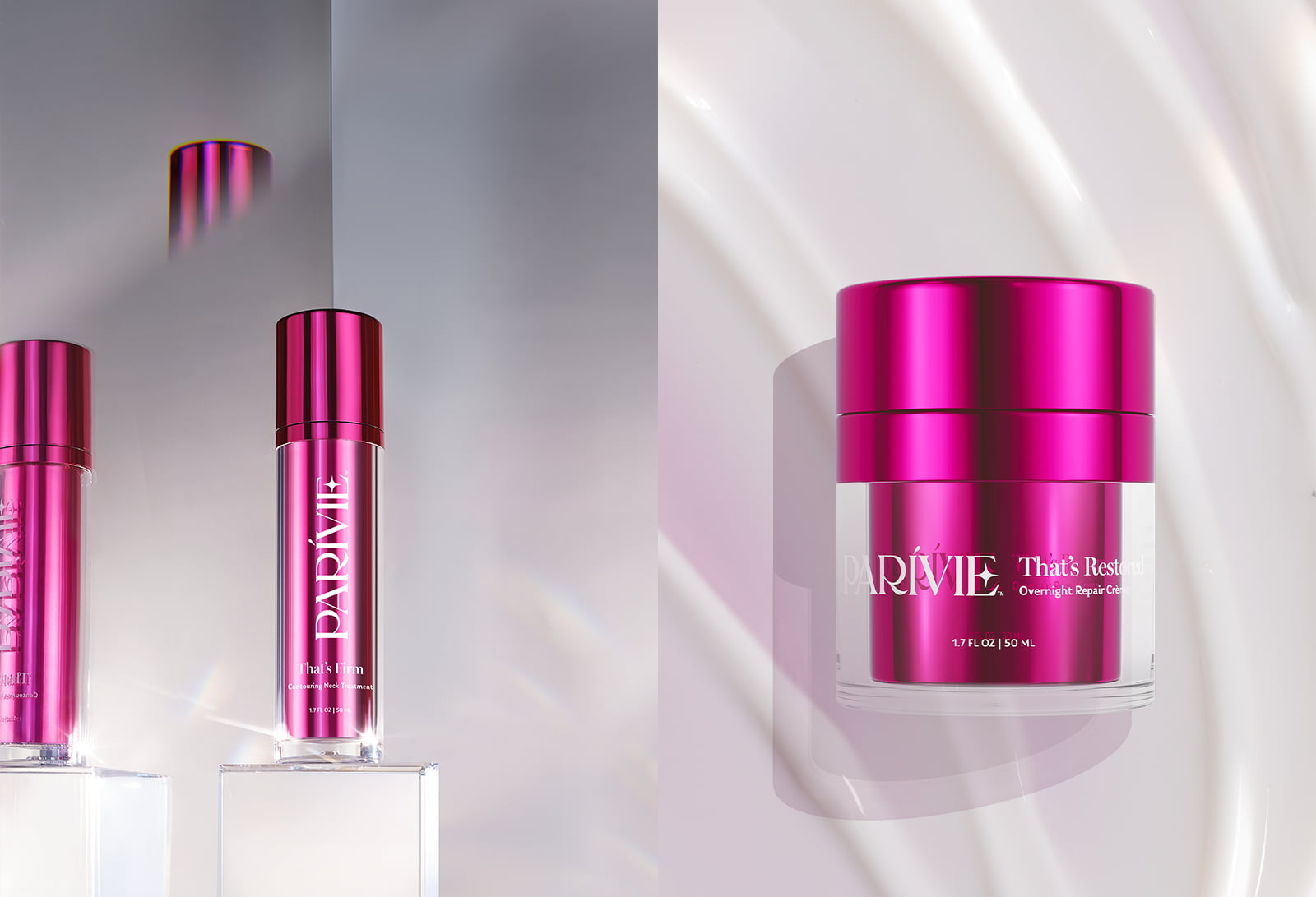Key Takeaways:
Paris Hilton has spent decades in the spotlight, but she can’t be pinned down to just one title. For those who came of age in the early 2000s, she was the quintessential socialite-turned-reality star. Music fans know her as one of the highest-paid female DJs in the world, with residencies at clubs like Amnesia in Ibiza and sets at festivals like Tomorrowland.
More recently, she earned recognition as an author and advocate, with her best-selling memoir and documentary, “This Is Paris,” and her work building momentum for the Stop Institutional Child Abuse Act. The bill, which passed in December 2024, creates federal oversight of residential treatment facilities for minors.
But one of Hilton’s most lucrative roles is also one of her least recognized: beauty mogul. Since launching her first fragrance with beauty manufacturer and distributor Parlux in 2004, she has built one of the most successful celebrity fragrance empires in history, generating over $2.5 billion in sales in more than 100 countries. Every minute, nine bottles of Paris Hilton Fragrances are sold worldwide.
Now, after two decades dominating the fragrance world, Hilton is setting her sights on a new frontier: skincare. Earlier this year, she introduced Parívie, her first co-founded and majority-owned skincare brand, developed in partnership with former Guthy-Renker executive Alexandra Marsh, and backed by Guthy-Renker and Hilton’s own 11:11 Media.
“Parívie was born from a deeply personal place,” Marsh told BeautyMatter. The two have been working together on this brand for more than three years. “We saw a clear gap: Women like us, living full-throttle lives, needed products that delivered real results, supported skin under modern stressors, and felt indulgent without being out of reach.”
Critics may have thought Hilton used up her 15 minutes of fame in 2005, but the reality star’s standing as a household name lasted over 20 years, proving that her influence extends far beyond the bounds of reality TV and tabloid headlines.
Hilton built an impressive fragrance empire, but can she do it again in skincare? BeautyMatter spoke with Lori Singer, President of Parlux, and Alexandra Marsh, co-founder and President of Parívie, to discuss the evolution of Hilton’s beauty empire and where Parívie fits within today’s rapidly changing beauty landscape.
Laying the Foundation in Fragrance
Hilton’s partnership with Parlux has spanned nearly two decades, an exceptionally long tenure in the world of celebrity licensing where most deals burn fast and bright but fade quickly. Since debuting her first fragrance, aptly named "Paris Hilton," in 2004, the collaboration has resulted in a portfolio of 30 scents and billions in global sales.
“What began in 2004 became one of the most successful fragrance businesses in the world,” Singer told BeautyMatter. “At Parlux, we're proud of our role in helping to shape the celebrity fragrance category with Paris, because we've always believed in the power of celebrity fragrance when it's done with intention, with authenticity, with staying power.”
The longevity of this partnership underscores both Hilton’s unique staying power as a celebrity and Parlux’s ability to translate her cultural influence into a scalable, international business.
“That kind of longevity doesn't happen on name alone,” said Singer. “When you look at this long-standing, successful, multibillion-dollar global brand that we’ve built together, the proof is in the pudding. The business results speak for themselves.”
Hilton takes an active role in producing, and even more importantly, promoting each new fragrance. Rather than treating launches as routine drops, she approaches them as full-scale events designed to capture both fan engagement and media buzz.
For her 30th fragrance, called “Iconic,” which was launched in partnership with Ulta Beauty, Hilton hosted a pink-carpet fan meet-and-greet at Ulta Beauty's West Hollywood flagship, where hundreds lined up to see her. At the same time, Parlux staged a live-shot commercial that included a cameo from influencer Paul Fino (known as Paul Reacts). The entire campaign was shot, edited, and turned around in just 24 hours. That same evening, Parlux and Hilton capped off the launch with a VIP rooftop party at the Waldorf Astoria in Beverly Hills, further proving Hilton’s ability to extend her influence across both consumer and industry-facing audiences.
“Not many people are going to do that,” said Singer. “The result was remarkable—not only did we have hundreds of fans at Ulta [Beauty], but we also secured national broadcast, press coverage, and significant social buzz. It just underscores the power of Paris and the Paris Hilton brand.”
Singer emphasized that Hilton’s willingness to meet and interact with fans, creating a truly immersive experience, is what sets her apart from other celebrity founders. “If we have a personal appearance scheduled for an hour or two, but the line stretches for four, she stays until every single person gets their photo,” Singer explained. “She doesn’t do it because it's part of the job; she truly loves meeting her fans, hearing their feedback, and making everyone feel special.”
If celebrity perfumes laid the groundwork for the wave of celebrity beauty brands that have emerged over the past decade, Hilton walked so that today’s celebrity brands could run. Her thriving fragrance brand stands as a rare case study in how star power, when paired with smart strategy, can evolve into a global business with scale, longevity, and consistent profitability.


The Birth of Parívie
Parívie, which is a blend of “Paris” and “vie,” the French word for “life,” marked the beginning of a new chapter in Hilton’s entrepreneurial journey in the beauty industry. With a fragrance empire worth billions, she's proven her power to influence culture and stay ahead of consumer and cultural trends. However, Parívie stands apart as Hilton’s first wholly owned, co-founded skincare brand, signifying a significantly deeper and more direct hands-on investment in the beauty space.
“This isn’t a celebrity stamp-on situation,” Marsh explained. Hilton has been intimately involved in every aspect of the brand, from initial concept to final packaging. She’s been hands-on, ensuring each formula meets her high standards, with many products undergoing over 15 iterations, according to Marsh. Parívie has been “obsessively tested” by Hilton herself, guaranteeing they align with her lifestyle and expectations.
“[Hilton] brings an extraordinary creative instinct—when we present an idea, she instinctively knows how to elevate it, adding her signature touch in a way only she can,” said Marsh. “Beyond product and brand, [Hilton] is a strategic force; she deeply understands the consumer, the cultural landscape, and where beauty is headed.”
With Parívie, Hilton is once again betting on herself to translate her star power into a sustainable, global business. She’s taking the lessons learned from fragrance when it comes to brand-building, international distribution, and understanding consumer desire, and applying them to skincare, a category that has been notoriously difficult for celebrities to crack—outside of Hailey Bieber’s rhode, of course. Kate Moss‘ Cosmoss entered liquidation in July, and JLo Beauty, a Guthy-Renker brand, exited Sephora in early 2024 after experiencing declining sales. In March 2025, Kim Kardashian's SKIMS acquired SKKN by Kim from Coty amid reports that SKKN by Kim was struggling in a competitive and saturated beauty market.
Parívie launched in May of this year with six products, including That's Radiant Daily Purifying Cleanser ($38) and That’s Tight Plumping Vitality Serum ($125). The serum contains the brand's proprietary "inPHinite Youth Technology,” which it claims is a multipeptide complex that includes one of the first AI-discovered peptides, along with pentapeptide, goji berry extract, and postbiotic ferments.
Parívie is intentionally positioned between mass and prestige in a category that Marsh describes as “performance-luxury.”
“From the beginning, it was important to Paris, and to all of us, that Parívie deliver serious skincare without becoming inaccessible,” she explained. “We’re premium, but intentionally not priced out of everyday use.”
Parívie’s launch coincides with a slowdown in the skincare category. According to Circana, skincare was the softest-growing category in the prestige market in 2024, with dollar sales up by only 2%, significantly trailing behind fragrance (12%) and makeup (5%). Ironically, NIQ reports that the fragrance market has experienced significant growth, consistently showing double-digit growth over the past four years. In 2024, US fragrance sales for the 52 weeks ending August 10, 2024, totaled $8.8 billion, representing a 22.1% year-over-year increase.
True to her track record of setting trends rather than following them, Hilton is launching Parívie at a time when skincare faces headwinds. Parívie initially launched DTC but quickly expanded into Amazon in June. Retail expansion is definitely on the roadmap, according to Marsh. “We’re taking a very strategic approach to finding the right partners who understand the vision and can help bring the brand to life at shelf—likely about a year post-launch,” she said.
Given Hilton’s massive international fan base, it’s no surprise that the brand has already attracted interest from global distributors and retail partners. However, Marsh emphasized that the brand is deliberately moderating its growth to ensure each new market benefits from the same meticulous consideration, educational initiatives, and community-building efforts that have been central to its strategy in the US.
Looking ahead, Marsh sees Parívie evolving well beyond skincare into a “full-fledged wellness and lifestyle brand.” The brand is also closely monitoring the convergence of biotech innovation and skincare, particularly advancements in cellular longevity, barrier function, and neurocosmetics.
“The future of skincare is less about surface-level benefits and more about optimizing skin health at a deeper, more functional level,” said Marsh. “Consumers are evolving rapidly; they expect clinical efficacy, transparency, and innovation that aligns with their personal health goals.”
“Ultimately, we do see Parívie becoming a full ecosystem where skincare, technology, and wellness intersect to create rituals that serve modern women, inside and out,” said Marsh.
The Future of Hilton’s Beauty Empire
Both Marsh and Singer spoke of Hilton’s evolution and how her fragrance and skincare lines are a reflection of who she is today: a mother, an entrepreneur, and a global icon. Hilton’s strength lies in that duality: She is both a visionary brand builder and someone who remains deeply personal and connected to her audience.
“It's a mirror of her own identity,” said Singer. “She loves to show all those different aspects of herself, the entire gamut of her personality, and when she pairs it with consistent storytelling, that's what's kept the brand relevant for two decades … they fall in love with the fragrance, because it's just as personal as she is.”
Hilton’s audience has grown and evolved alongside her. Over time, she has also attracted a newer, much younger audience that discovered her not as a reality TV star but potentially through her activism or music career. Today, Hilton has over 52 million combined followers across her major social media platforms, including Instagram, TikTok, X (formerly Twitter), and Facebook.
“[Hilton’s] ability to blend nostalgia with modern relevance is what makes her a standout voice across generations, and that's who's buying the fragrances today,” said Singer.
With Parívie, Hilton has more than her billion-dollar fragrance legacy at stake. Long underestimated as a businesswoman, she’s determined to show she can capture lightning in a bottle twice; this time with a science-backed skincare brand built for both scale and staying power.
“Whether you’ve followed Paris for years or are just connecting with who she is today, Parívie meets you where you are,” said Marsh.
“[Hilton’s] legacy naturally draws in longtime fans, but this brand is more than nostalgia; it stands firmly on its own.”
Hilton has spent the last 20 years dominating the fragrance category. While skincare may be softening, Hilton is used to defying convention. She cultivated a public persona, leveraged fame for business, and paved the way for the modern influencer culture before the term "influencer" even existed. She's proven to be comfortable in the chaos of entrepreneurship.
With two decades of experience in the beauty industry under her belt, Hilton is well-equipped to take on the challenge of building a celebrity skincare brand that's more than just a flash in the pan.
But can it make Hilton a billion dollars richer? That remains to be seen.